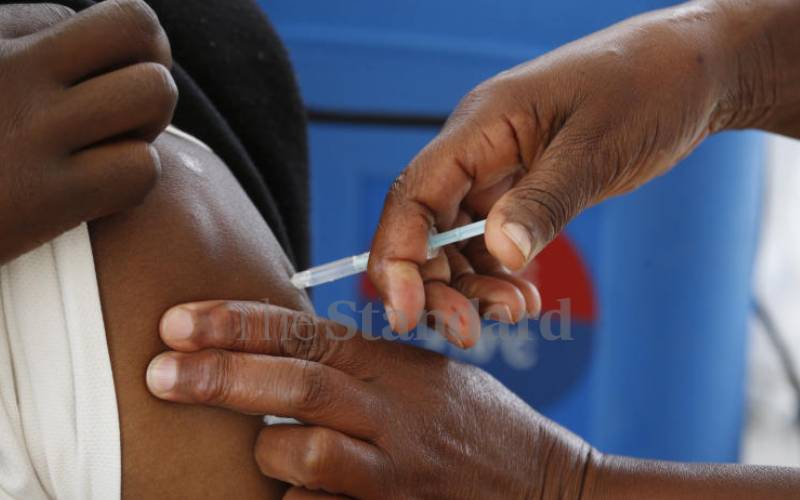×
The Standard e-Paper
Stay Informed, Even Offline

Vaccination at Dagoretti Deputy County Commissioner’s Office, Nairobi. February 3, 2022. [Stafford Ondego, Standard]
The World Health Organisation (WHO) declared the Coronavirus disease (Covid-19) a public health emergency of international concern on January 30, 2020 signalling the end of normalcy as we knew it. This was further sealed on March 11, 2020 when the outbreak was officially declared a pandemic, with over 100,000 cases at the time spread in over 110 countries and territories.